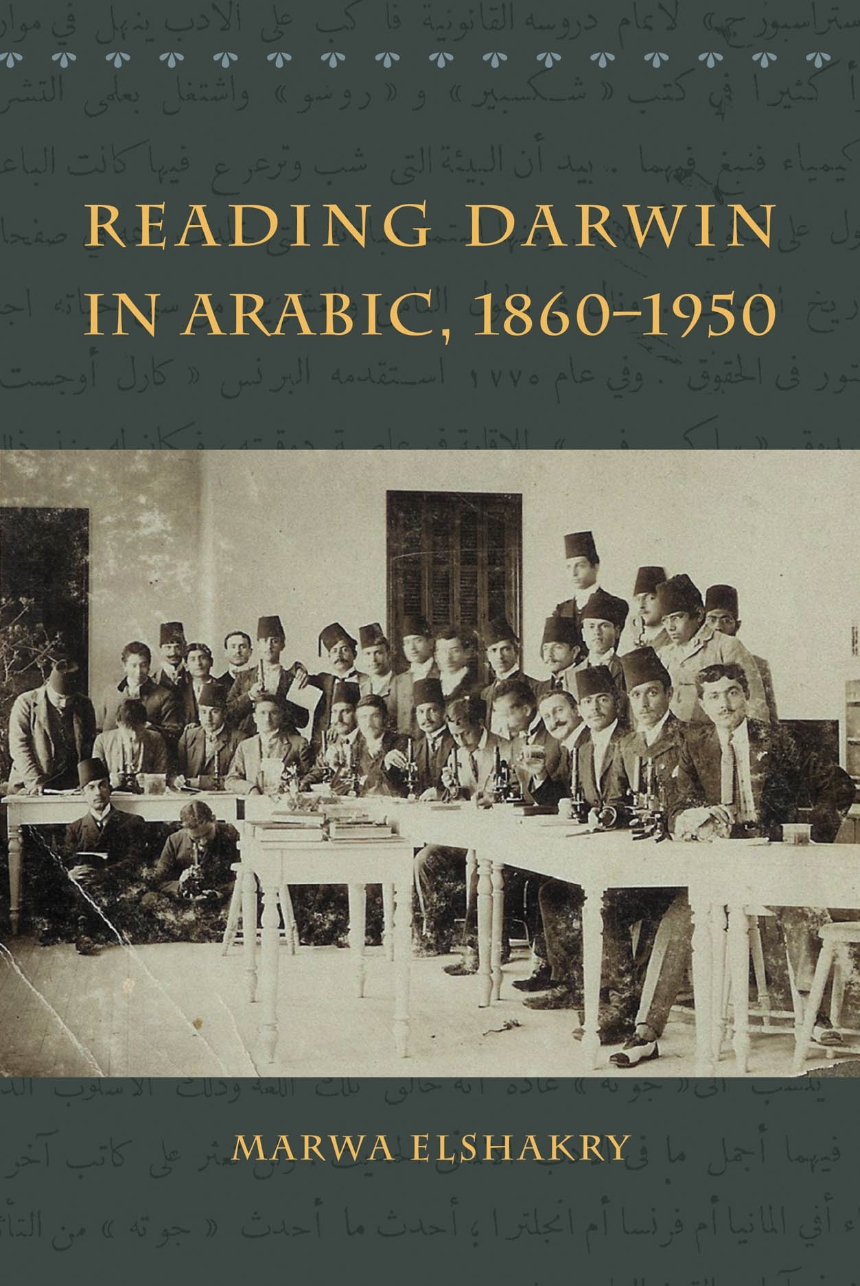Reading Darwin in Arabic, 1860-1950
Publication supported by the Bevington Fund
In Reading Darwin in Arabic, Marwa Elshakry questions current ideas about Islam, science, and secularism by exploring the ways in which Darwin was read in Arabic from the late 1860s to the mid-twentieth century. Borrowing from translation and reading studies and weaving together the history of science with intellectual history, she explores Darwin’s global appeal from the perspective of several generations of Arabic readers and shows how Darwin’s writings helped alter the social and epistemological landscape of the Arab learned classes.
Providing a close textual, political, and institutional analysis of the tremendous interest in Darwin’s ideas and other works on evolution, Elshakry shows how, in an age of massive regional and international political upheaval, these readings were suffused with the anxieties of empire and civilizational decline. The politics of evolution infiltrated Arabic discussions of pedagogy, progress, and the very sense of history. They also led to a literary and conceptual transformation of notions of science and religion themselves. Darwin thus became a vehicle for discussing scriptural exegesis, the conditions of belief, and cosmological views more broadly. The book also acquaints readers with Muslim and Christian intellectuals, bureaucrats, and theologians, and concludes by exploring Darwin’s waning influence on public and intellectual life in the Arab world after World War I.
Reading Darwin in Arabic is an engaging and powerfully argued reconceptualization of the intellectual and political history of the Middle East.
448 pages | 22 halftones | 6 x 9 | © 2013
History: History of Ideas, Middle Eastern History
Religion: Islam
Reviews
Table of Contents
Awards
Journal of the History of Ideas: Morris D. Forkosch Prize
Won
Abu Dhabi Tourism and Culture Authority: Sheikh Zayed Book Award
Shortlist
